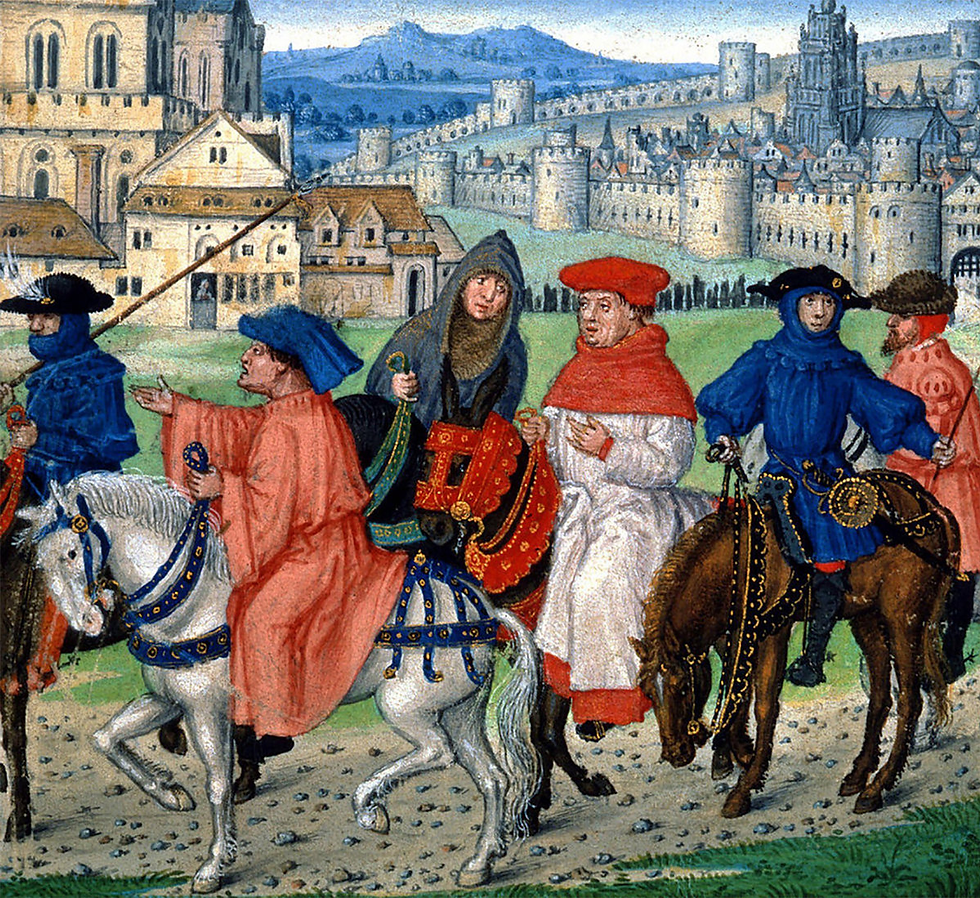The Sociology of Banning Literature.
- Advika Asthana
- May 26, 2023
- 2 min read
Throughout history, those in positions of power have exerted control over the publication and dissemination of literary works. Even revered classics like Chaucer's "The Canterbury Tales" faced criticism and condemnation during medieval times. It is disheartening to see how great works of literature have been labeled as obscene or unfit for consumption simply because they challenged the prevailing norms. In this blog post, we delve into the history of book banning, explore the reasons behind it, and discuss the profound losses we incur as a result.

(A painting of Geoffrey Chaucer's Canterbury Tales)
A Historical Perspective
From the early days of literature, we find instances of books being discouraged or banned. For example, the Roman emperor Caligula discouraged reading Homer's "The Odyssey" due to its promotion of Greek ideas of freedom. The Roman Catholic Church also considered "The Odyssey" a banned book. Throughout the centuries, the powerful have sought to control the flow of ideas, restricting the public's access to diverse perspectives and inhibiting our understanding of creativity and the human experience.
Why?
The act of banning books stems from a desire to control the influence of ideas. Governments, institutions, and religious bodies have frequently censored books and movies that challenge their ideologies or explore controversial themes. This raises the question: why ban books that are widely celebrated and cherished by readers? If we look at the list of most banned books, such as "1984," "To Kill A Mockingbird," "Lolita," and "The Hate U Give," we find that they often touch upon sensitive topics like racism, sexual assault, gender-based crimes, religious offenses, and conspiracies. These works offer a ground-level exploration of personal experiences, diverging from the comfort of conventional literature.

(PBS, Popular Banned Books)
The Losses We Suffer
Censorship, often disguised as protecting societal values, places limitations on the freedom of expression and restricts our access to different perspectives. When we label literature as vulgar or obscene based on its portrayal of real-life stories, we prevent readers from grasping the true essence and profound meaning behind these works. For instance, Maya Angelou's powerful memoir, "I Know Why the Caged Bird Sings," was banned by numerous institutions for its alleged vulgarity and obscenity. However, such censorship denies readers the opportunity to understand the author's experiences with racism and sexual assault, silencing the voices of those who have gone through similar ordeals.
Preserving Freedom and Empathy
Banning books and movies solely based on their themes is not the solution. Instead, we should empower readers to make their own choices about the content they engage with, aligning with their personal beliefs and encouraging open discussions. Deciding what literature is suitable for others restricts the flow of information and silences those with unique experiences and perspectives.
To conclude, banning books robs society of the richness and diversity of literary works that challenge our thinking, broaden our understanding, and foster empathy. We must recognize that literature has the power to ignite conversations, drive positive change, and encourage empathy among individuals. Let's celebrate the power of literature to educate, inspire, and unite us. And let's remember that when we ban books, we're not just silencing authors, we're silencing ourselves.

Quite a well-written piece. Refreshing, informative and thought-engaging.